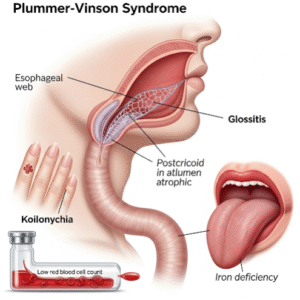What it is
Probiotics are live microorganisms, primarily bacteria or yeast, that provide health benefits when consumed in adequate amounts. They are commonly referred to as “good bacteria” because they help maintain a healthy balance of gut microbiota, which is essential for digestion, immunity, and overall well-being.
➡ Key points about probiotics:
- Common strains include Lactobacillus, Bifidobacterium, and Saccharomyces boulardii
- Available as dietary supplements, functional foods, yogurts, and fermented products
- In Korea, probiotics are widely used for digestive health, immunity, and chronic condition management
💡 Important facts:
- Probiotics do not replace medications, but may support digestive and immune function
- Effects are strain-specific; different strains may target different health concerns
- Korean research and product development emphasize high-quality, clinically studied strains
Why it’s done
Probiotics are used for preventing or managing digestive, immune, and other health conditions.
➤ Medical indications include:
- Digestive health → Reducing diarrhea, constipation, bloating, and irritable bowel syndrome (IBS)
- Antibiotic-associated issues → Restoring gut flora after antibiotics
- Immune support → Reducing incidence of respiratory infections or allergies
- Chronic diseases → Supporting metabolic health, such as in diabetes or obesity
- Skin conditions → Certain strains may improve eczema or acne
➤ Key benefits:
- Enhances gut microbiota balance
- Supports efficient digestion and nutrient absorption
- Strengthens immune defense mechanisms
- Reduces risk of gastrointestinal infections
- May contribute to mental health support via gut-brain interactions
Alternatives
Probiotics are part of a broader approach to gut and overall health. Alternatives or complementary strategies include:
✔ Prebiotics → Non-digestible fibers that feed beneficial gut bacteria
✔ Synbiotics → Combination of probiotics and prebiotics for enhanced effect
✔ Fermented foods → Kimchi, miso, yogurt, kefir, and other traditional foods
✔ Dietary modifications → High-fiber, low-sugar, and nutrient-rich diet
✔ Lifestyle approaches → Adequate sleep, stress management, and regular exercise
Note: While alternatives support gut health, probiotics provide direct supplementation of beneficial bacteria, which may be necessary in certain clinical or post-antibiotic situations.
Preparation
Proper preparation ensures optimal efficacy and safety of probiotic use.
🔹 Medical evaluation
- Review existing health conditions, particularly immune-compromised states or gastrointestinal disorders
- Discuss current medications, especially antibiotics or immunosuppressants
🔹 Product selection
- Choose clinically studied strains and reputable brands
- Verify dosage and expiration date, as probiotics are sensitive to heat, moisture, and time
🔹 Lifestyle considerations
- Maintain healthy diet and hydration
- Avoid excessive processed foods or artificial sweeteners, which may disrupt gut flora
How it’s done
Probiotics are administered via oral supplementation or functional foods.
➡ Step-by-step approach:
- Choosing the right probiotic
- Identify strain-specific benefits based on health needs
- Determine dosage form: capsules, tablets, powder, liquid, or fermented foods
- Consumption
- Follow manufacturer or physician instructions
- Take with or without meals as recommended, depending on product type
- Consistency is key; daily intake provides best results
- Monitoring effects
- Track improvements in digestion, bowel habits, immunity, and overall well-being
- Consult healthcare provider if side effects occur or if symptoms persist
💡 Tips for effectiveness:
- Store probiotics in cool, dry conditions to maintain viability
- Use freshly prepared fermented foods to maximize live bacteria intake
- Combine with prebiotics for enhanced gut colonization
Recovery / Expected Outcomes
Probiotics are generally safe and well-tolerated, with outcomes depending on strain, dosage, and individual gut health.
🔹 Short-term effects:
- Improved bowel regularity and reduced bloating
- Mild gas or changes in stool consistency may occur initially
- Enhanced digestive comfort and nutrient absorption
🔹 Long-term benefits:
- Balanced gut microbiota and stronger immunity
- Reduced incidence of antibiotic-associated diarrhea
- Potential improvements in metabolic and skin health
- Support for mental well-being through the gut-brain axis
Complications / Considerations
Probiotics are safe for most people, but some considerations include:
⚠ Minor side effects → Gas, bloating, or mild digestive discomfort initially
⚠ Severe reactions → Rare, primarily in immune-compromised individuals
⚠ Product quality concerns → Contamination or incorrect strains in poorly regulated supplements
⚠ Medication interactions → Rare, but caution with immunosuppressants or antibiotics
Mitigation:
- Choose clinically tested, high-quality probiotics
- Start with lower doses if sensitive to supplementation
- Consult healthcare provider for chronic conditions or immune disorders
Treatment Options in Korea
Probiotics are widely available in hospitals, clinics, pharmacies, and health stores across Korea.
🏥 Providers and products:
- Seoul National University Hospital (SNUH) → Clinical probiotic therapy for digestive and immune health
- Asan Medical Center → Integrative approaches including probiotics for chronic GI conditions
- Pharmacies and health stores → Over-the-counter probiotic supplements and functional foods
- Korean fermented foods industry → Kimchi, yogurt, and kombucha enriched with live cultures
💰 Cost and insurance:
- Probiotics are generally over-the-counter and not covered by insurance
- Costs vary depending on strain, concentration, and brand
- Hospital-based probiotic therapies for specific conditions may be part of clinical nutrition programs
🔹 Additional support:
- Guidance from nutritionists and gastroenterologists for tailored probiotic regimens
- Integration with prebiotics, dietary planning, and lifestyle modifications
- Monitoring of gut health, lab markers, and symptom improvement
Conclusion
Probiotics in Korea offer a safe, effective, and science-backed approach to supporting digestive and immune health.
By incorporating probiotics, individuals can:
- Enhance gut microbiota balance and overall digestion
- Support immune function and reduce infection risk
- Improve metabolic, skin, and mental health outcomes
- Complement diet, lifestyle, and medical therapies for long-term wellness













